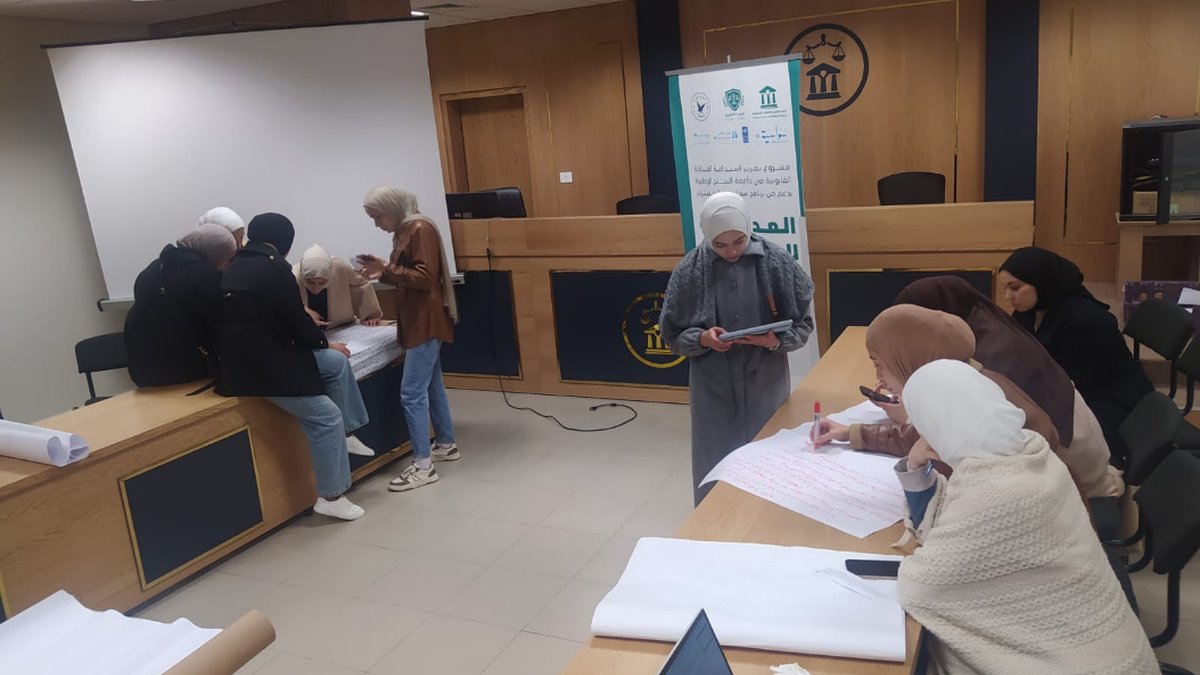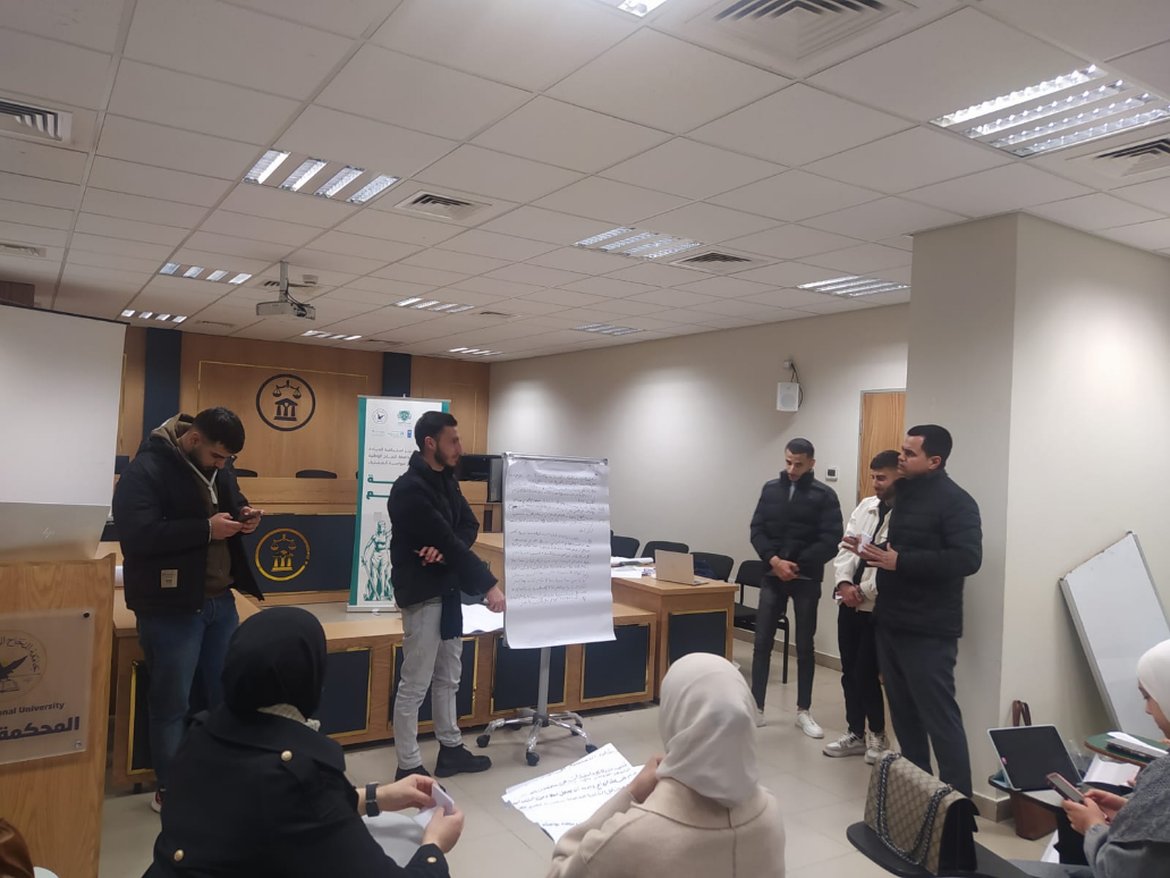
As part of its ongoing efforts to empower students and enhance their practical skills, the Legal Clinic at the Faculty of Law and Political Science at An-Najah National University organized an intensive training program on legal consultations, which took place over multiple sessions from February 23 to March 9, 2025. This training was conducted within the framework of supporting applied legal education and was led by Mr. Mohammad Al-Atrash, the Legal Clinic’s attorney. The program aimed to equip students with specialized legal knowledge in matters of personal status law while emphasizing practical application and engagement with real-life cases.
The training covered several key legal topics relevant to everyday life, including an introduction to the legal framework of personal status laws in Palestine and the rights and obligations of individuals in cases of marriage, divorce, alimony, and child custody. Additionally, the program introduced students to legal procedures followed in Sharia courts. The training also focused on the skills needed for providing legal consultations and drafting professional legal memoranda, applying these skills to real cases presented before the courts. This practical approach enhanced students’ ability to analyze legal cases and address them with legal precision, preparing them for the legal job market with confidence and competence.
Beyond the legal aspects, the training included in-depth discussions on the social dimensions of personal status cases, enabling students to understand the impact of legal rulings on individuals, families, and society as a whole. Active learning strategies such as case studies, group discussions, and practical applications were employed to reinforce legal concepts and develop students’ analytical and professional skills.

This training aligns with the Legal Clinic’s commitment to achieving the United Nations Sustainable Development Goals (SDGs). It contributes to improving the quality of legal education by integrating theoretical knowledge with practical application, in line with SDG 4, which focuses on providing quality education that ensures students acquire practical skills to prepare them for the job market. The training also supports SDG 5, which promotes gender equality, by enabling students to understand laws related to women’s rights, children's rights, and personal status laws while raising awareness of the legal rights of the most vulnerable groups. Furthermore, the training advances SDG 16, which focuses on building strong institutions and promoting the rule of law, by preparing a generation of qualified legal professionals who can support justice and contribute to the development of the legal system.
This program significantly contributed to enhancing students’ abilities to handle legal issues professionally and increased their confidence in providing legal consultations and addressing various cases that concern society. The training received positive feedback from participants, who praised its rich content and interactive approach, which helped them refine their practical skills.
The training is part of a series of educational and training activities carried out by the Legal Clinic at An-Najah National University, aimed at strengthening applied legal education and supporting various community groups by providing high-quality legal services. These efforts are implemented within the framework of the Legal Clinic’s Sustainability Enhancement Project, in partnership with the Sawasya III program, the United Nations Development Program (UNDP), UN Women, and UNICEF. This collaboration underscores the importance of legally and professionally empowering students, thereby contributing to the development of the justice sector and enhancing legal rights in Palestinian society.
عدد القراءات: 45
